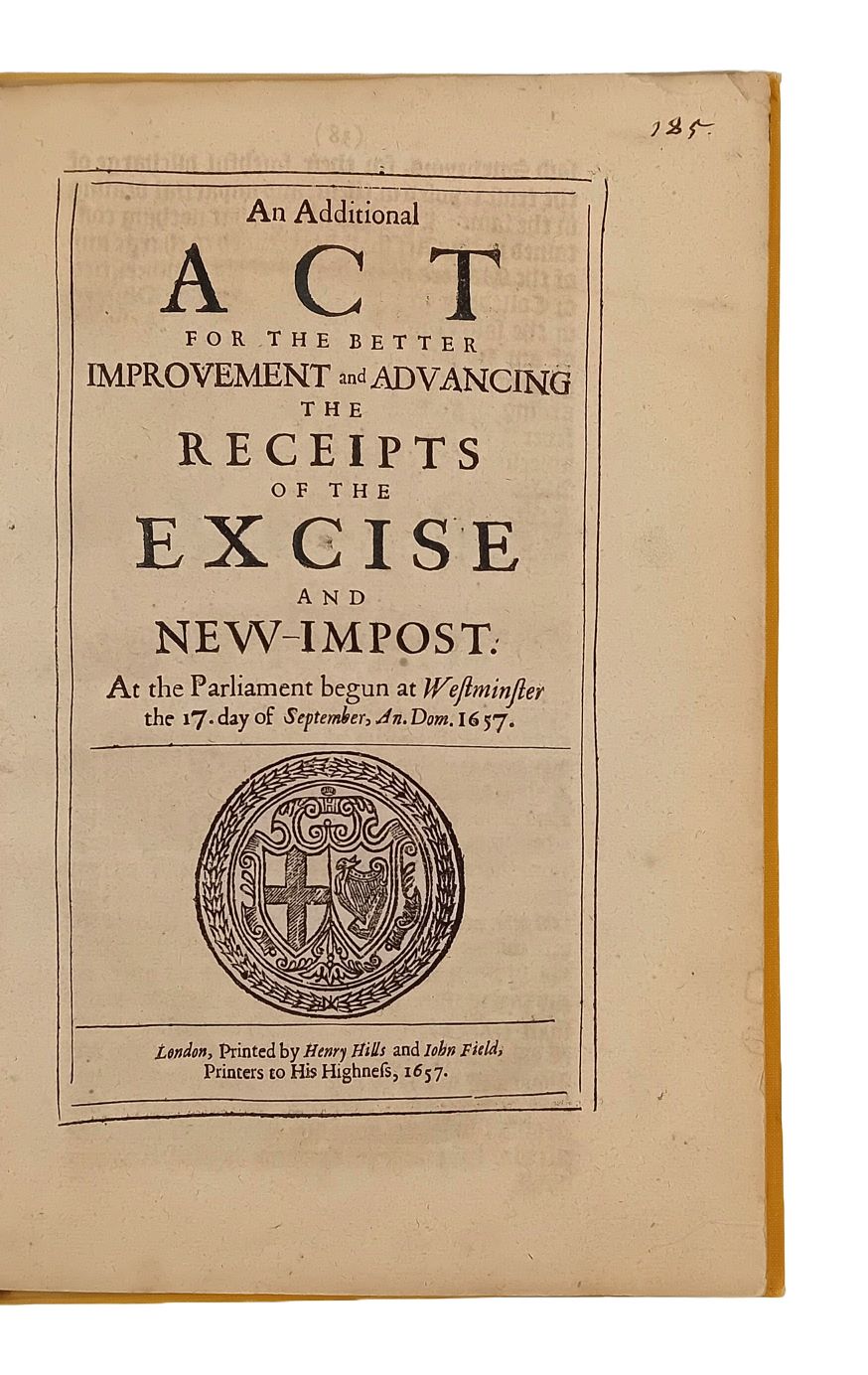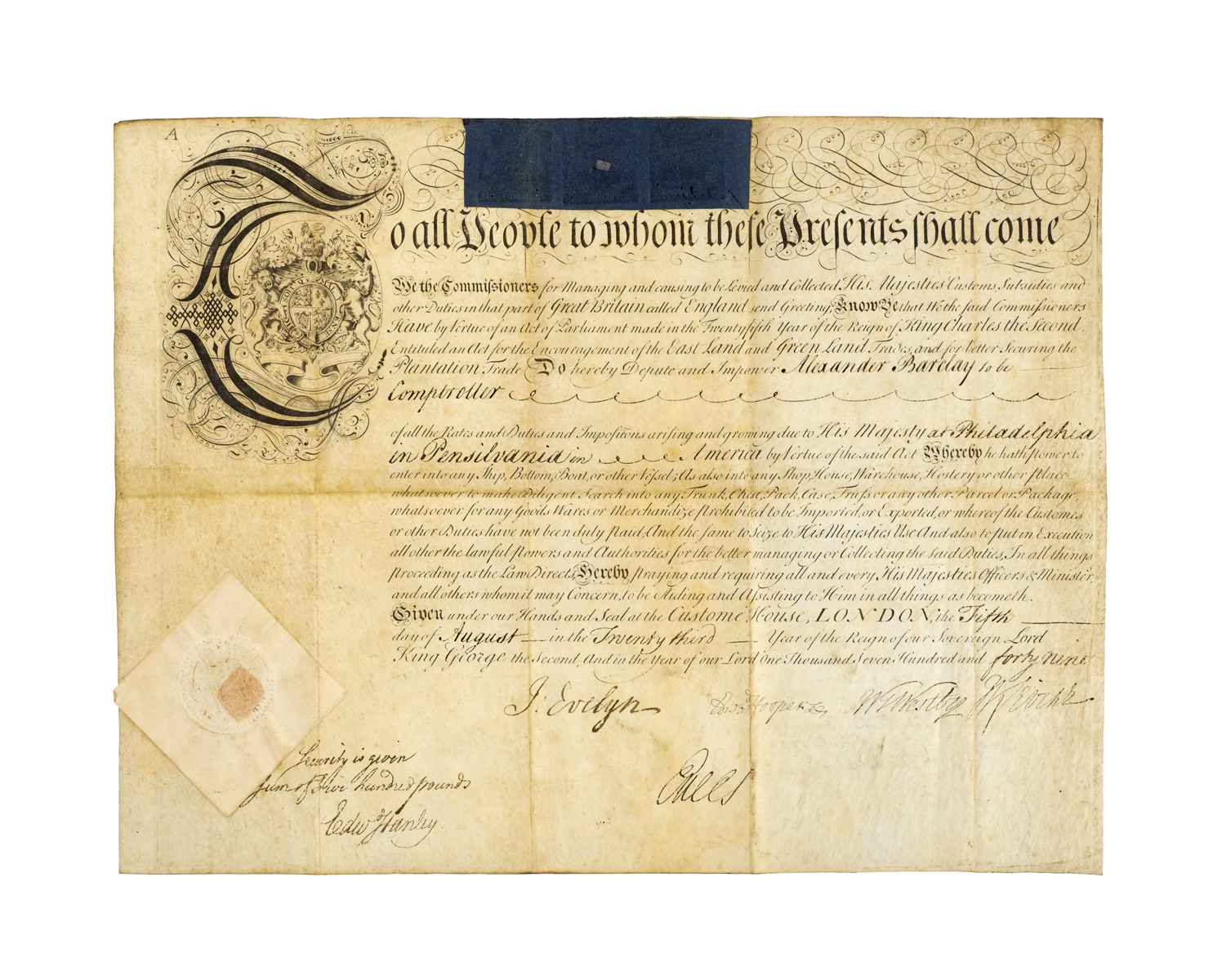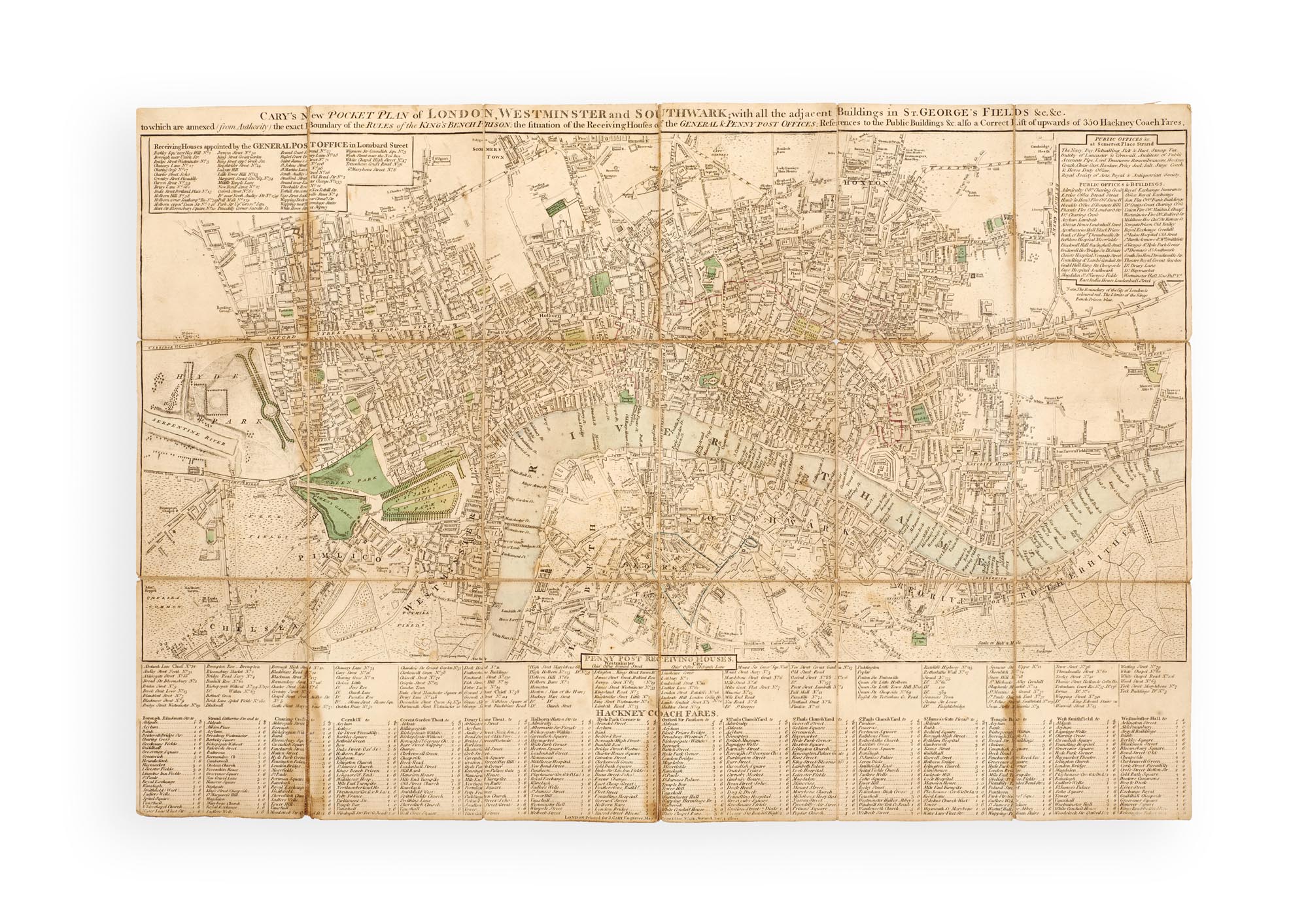
[TRADE AND EXCISE].
An Additional Act for the better improvement and advancing the receipts of the Excise and New-Impost. At the Parliament begun at Westminster the 17 day of September, An. Dom. 1657.
London, Henry Hills and Iohn Field, Printers to His Highness, 1657.
Folio, pp. [ii], 1-14, 11-42, 47-61, [1 blank], complete; woodcut of the arms of the Protectorate on the title; lower corner of one sheet torn off (far from text); a few light marks, but a very good copy in modern mustard cloth; exlibris of C. A. Van Der Beek to the front pastedown.

Added to your basket:
An Additional Act for the better improvement and advancing the receipts of the Excise and New-Impost. At the Parliament begun at Westminster the 17 day of September, An. Dom. 1657.
First edition. The most substantial part of the Act, entitled ‘A Book of Values of Merchandize imported, according to which, excize is to be paid by the first buyer’, includes a 40-page alphabetical list of imported commodities, each recorded with the respective payable duty. A lively and detailed fresco of mid-seventeenth-century English life is conjured up in the sequence of goods, from homely soap-ashes and baskets and ‘candle-week’, to exotic commodities from colonies and plantations. Among many others: cochineal, drugs (with their own sub-list of about 260 individual substances), elephants teeth, ebony, fans, furs of all kinds, hour-glasses, horses, linen, musical instrument parts, oars, pans, 11 sorts of paper, saffron, silks, spectacles, whale-bone. Children’s items (coaches, fiddles, rattles, trumpets etc) pepper the list quite insistently, bringing to the fore a picture of a specific market which is perhaps rarely studied from this point of view.
ESTC R206320. This is the issue with the first line of the imprint ending in ‘Field’; another was produced (no priority given) with that line ending in ‘His’.

